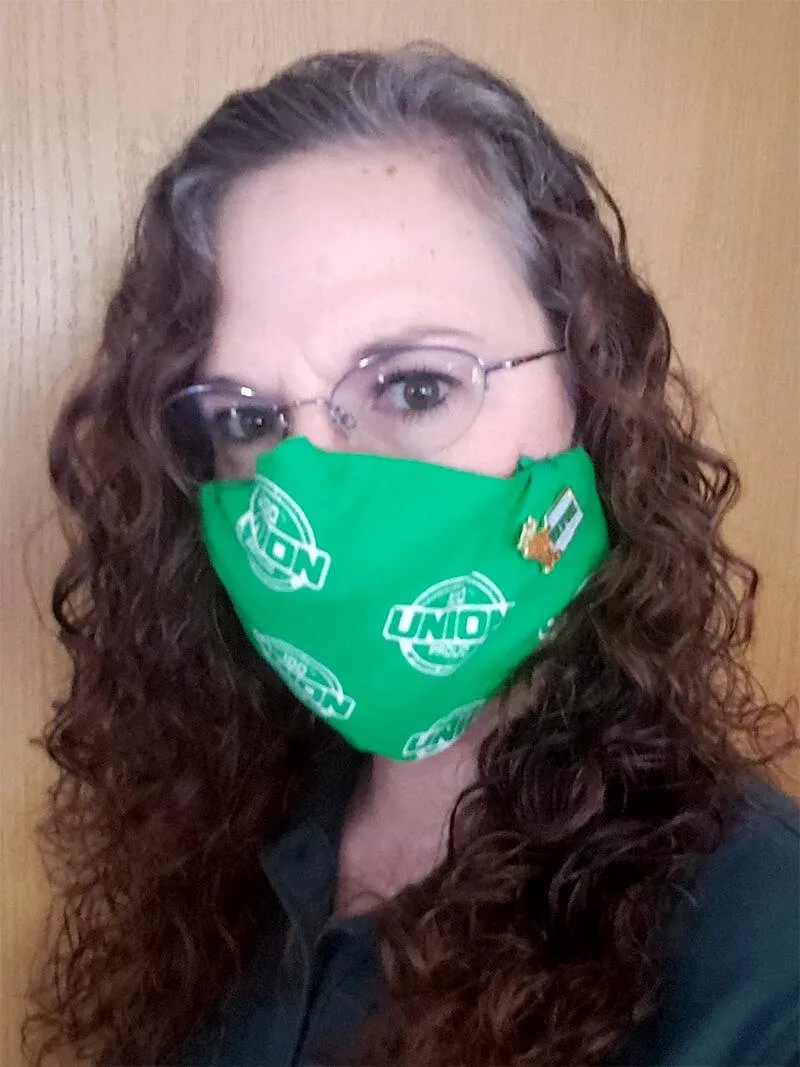‘Our Work is Essential to Keep Kids Safe’

Editor’s note: The following is a story from the front lines of the fight against COVID-19, as told by a member in Washington state:
“My name is Kristina Johnson-Short and I am a social services specialist with the Division of Children, Youth and Families in Washington state. I’m a proud AFSCME member, a shop steward and president of AFSCME Local 1054 (WFSE). I am also a domestic violence survivor.
In my role, I work mostly with children. When children become wards of the court, I am the social worker who works with the entire family unit – with the responsibility of determining if it is in the child’s best interest to be reunited with his or her family in the future, raised by another relative, or placed in an adoptive home.
Sadly, quite a few of the families I serve experience domestic violence in their homes.
In the weeks since communities across the nation have been directed to stay home to help prevent the virus’ spread, domestic violence perpetrators have been able to thrive off of their life source: power and control.
The hard thing with this lockdown is you don’t leave your home unless you are conducting essential business or if you’re lucky enough to have a job that is deemed “essential.”
Here in Washington, the reporting of domestic violence and child neglect has dropped significantly in the wake of COVID-19 because victims and teachers are unable to report it. Victims are locked in their homes with their abusers 24/7 and there’s no outlet for getting help. In normal times, victims typically would have a way out of the home – by going to work, going to school, running errands – but when everyone is in the house, she or he doesn’t have the opportunity to get away and report the abuse. And if they are able to go get groceries their abuser may stay home with the kids as a way to prevent any reporting by the victim.
Once this ban is lifted, we expect to see an increase in reports of domestic violence. We’re in this lull right now because everyone is behind closed doors.
Social distancing has created a unique set of challenges in the world of social work.
We are now working from home. … Any attempts to keep the children connected to their parents is only through FaceTime – which doesn’t have the same value and effect as time together in-person. You lose the body language element, batteries in electronics go out, or you lose signal, and ultimately, the flow of the conversation suffers. Also, there’s a lot you cannot see when you are not working with the families face-to-face.
This creates yet another level of difficulty for these families. We are trying to work to get them reunited, but we have families who are required to do therapy sessions remotely and some providers have even cancelled. Treatment for chemical dependency and other critical services have been postponed. And long-awaited family reunions are put on hold, as most trial returns home are being delayed.
And if we do have a trial return home, they have additional stressors that wouldn’t otherwise be present: schools are closed, daycares are closed, they are having to provide home schooling while dealing with issues such as substance abuse, mental health issues, and/or domestic violence.
With all the fear that’s going on, it’s a lot, especially on the children involved. There’s an additional level of trauma and uncertainty. Can you imagine, as a child, being taken from your home when we’re coming in with gloves, face masks and other protective equipment on?
As Congress deliberates on another relief package, I would just ask them to remember our stories. I would ask them to invest in states and localities so that our governments don’t have to face the choice of which vital services get cut. Our communities depend on us whether a nurse, school custodian or social services specialist, like me.
My line of work is dangerous on a typical day, but the COVID-19 pandemic has raised the stakes. Our work is essential to keep kids safe. Keeping them safe is why I am proud to be a public service worker. And why I’m proud to be an AFSCME member.”
